In far-ranging exchange, Fatou Bensouda responds to what she calls ‘character assassination’; says she ‘fondly’ remembers her 1998 trip to Israel, hopes to be able to visit again
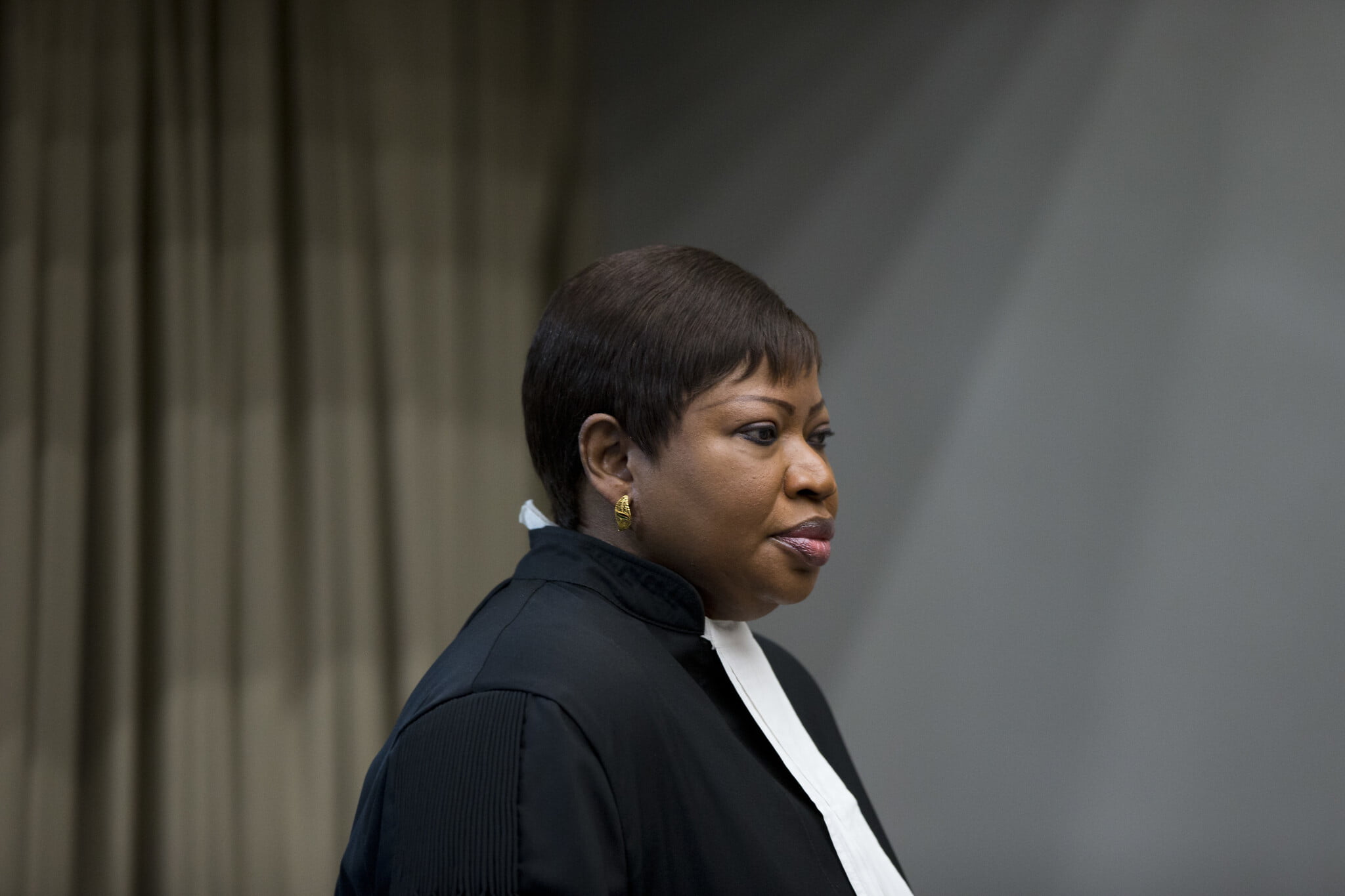
The chief prosecutor of the International Criminal Court this week shot back at Prime Minister Benjamin Netanyahu, who last month accused her of “pure anti-Semitism” for seeking to investigate possible war crimes committed in Gaza, the West Bank and East Jerusalem.
“This is a particularly regrettable accusation that is without merit,” Fatou Bensouda told The Times of Israel in a wide-ranging interview.
“I, along with my office, execute our mandate under the Rome Statute with utmost independence, objectivity, fairness and professional integrity. We will continue to meet our responsibilities as required by the Rome Statute without fear or favor,” she added.
The Rome Statute is the ICC’s founding document, which defines the court’s work.
On December 20, Bensouda announced that she found “reasonable basis to proceed with an investigation into the situation in Palestine.” In her statement, which followed a five-year preliminary examination, the prosecutor determined that Israeli officials, as well as Palestinian armed groups, may have committed war crimes in the areas claimed by the Palestinians.
In response, Netanyahu accused The Hague of “pure anti-Semitism.”
“They say the Jews do not have a right to live in the land of the Jews, in the Land of Israel. Well, we say, shame on you,” Netanyahu said at a December 22 Hannukah lighting ceremony at the Western Wall in Jerusalem. “The light of truth lights here and we will overcome you, just as we overcame other anti-Semites in history.”
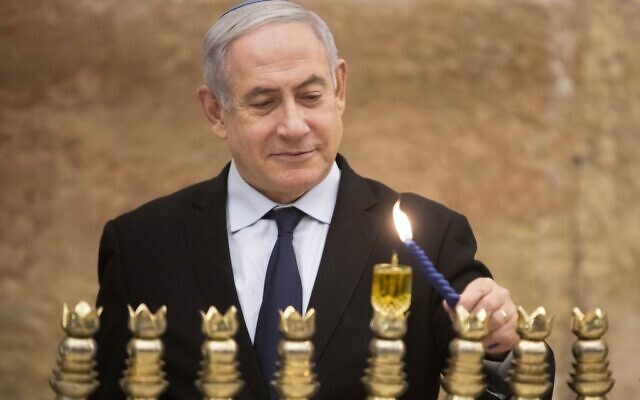
Other senior politicians similarly condemned the court and its prosecutor because of her decision. Some Israeli journalists published articles highlighting her past as a senior official in the Gambian government, where she served under a brutal dictator, in an apparent effort to sully her reputation.
In our interview, Bensouda lamented efforts to “spin or misrepresent” her work as ICC prosecutor by making false accusations and/or attacking her credibility. “This of course was anticipated, as it is a standard tactic to discredit someone who makes an accusation or takes a contrary position,” she said.
“In our own courtroom context, it is perhaps akin [to] a counsel trying to mount a character assassination of a witness to undermine their credibility.”
Bensouda, who served as former Gambian dictator Yahya Jammeh’s justice minister between 1998 and 2000, insists that, at the time, she served her native country “honorably and with utmost integrity” and demonstrated a “sincere and unshakable commitment to the law, and equality in the eyes of the law.”
She was “dismayed and shocked” to hear about the severe human rights abuses in the regime she served that are now coming to light thanks to The Gambia’s Truth, Reconciliation and Reparations Commission, she said.
She would be happy to testify in front of the committee, if her mandate as ICC prosecutor allows it, she added.
“I have nothing to hide and my conscience is clear,” she declared.
“Allow me to also reiterate here that I, along with my dedicated and professional staff, am firmly committed to our mandate under the Rome Statute. No matter what. We will not be distracted or allow our work to be impeded by an agenda-filled disinformation campaign aimed at undermining our work.”
‘In our own courtroom context, it is perhaps akin [to] a counsel trying to mount a character assassination of a witness to undermine their credibility’
Despite her apparent misgivings about how Israeli politicians and some journalists have portrayed her since last month’s announcement, Bensouda spoke positively about a 1998 trip to Israel.
During that visit, Bensouda participated in a seminar for women leaders from all over the world hosted by Mashav, the Foreign Ministry’s Agency for International Development Cooperation, in Haifa.
“I participated in that conference in my prior role with the Government of The Gambia. I fondly recall that visit and the important discussions on women’s empowerment,” she said.
She added that she hopes to get another chance to travel to Israel.
Bensouda stressed that “there are no suspects at this stage (whether Israeli or Palestinian) and certainly… no warrant of arrests have been issued by the court.”
She was likely responding to a report in the Israel Hayom daily that cited senior ministers in Jerusalem being “profoundly concerned” that the ICC could soon start issuing secret arrest warrants for officials it considers suspects.
In our interview, which was conducted via email, Bensouda went to great lengths to defend her decision to seek a criminal investigation into war crimes perpetrated in “Palestine.”
Seeking to dismantle one of the Israeli government’s key points against a probe — that “Palestine” is not a sovereign state that could transfer territorial jurisdiction to The Hague — the prosecutor insisted that all she did was determine that Palestine is a state for the purpose of the Rome Statute.
After the United Nations General Assembly in 2012 voted in favor of granting “Palestine” non-member state status, this entity could accede to numerous treaties, including the ICC Statute, she recalled.
In January 2015, the “State of Palestine” deposited the instruments of accession with the UN secretary-general, thus officially becoming a member of the ICC.
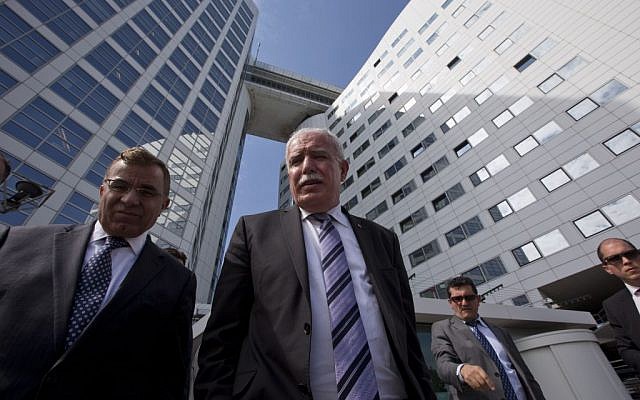
“I argue that the Rome Statute makes no distinction among State Parties and I do not believe that I should myself make a distinction in lodging an investigation on the territory of Palestine,” Bensouda said. “It would be strange to permit Palestine to join the court, but to deny to it the natural consequence of its accession, which is to exercise the court’s jurisdiction on its territory.”
Bensouda stressed that the question of jurisdiction is tricky, however, and that, before launching an investigation, she has therefore requested an ICC pretrial chamber to rule on the matter within 120 days.
“For me, this is the responsible course of action as a prosecutor. The approach is sober. We recognize the existence of complex legal and factual issues and we voluntarily submit our position on the scope of the court’s territorial jurisdiction for judicial review,” she said. “Moreover, we invite the court’s judges to hear from relevant parties before coming to a reasoned decision to settle this question now, before we proceed further.”
The prosecutor was hesitant to discuss how she would react were the three judges of the pretrial chamber to disagree with her and rule that the court has no jurisdiction over the case. But she expressed a hope for “constructive interactions” with Israeli and Palestinian officials.
What follows is a complete transcript of the interview.
The Times of Israel: Just a few hours before you published your decision to launch an investigation into “the situation in Palestine,” the Israeli attorney general published a detailed written opinion on why the court does not have jurisdiction in this case.
Sources in Jerusalem say that your office was aware that the AG was working on this document, but that you made no effort to engage with it. Rather, your office decided to rush to conclude the preliminary investigation without fully considering all the arguments put forward by the Israeli government. How do you respond to these charges?
Fatou Bensouda: This is not accurate. The Office of the Prosecutor has regularly, meaningfully and comprehensively engaged with the Israeli authorities since the opening of the preliminary examination in the situation in Palestine for close to five years.
That has also included discussions with the representatives of, among others, the Attorney General Office of Israel and the Ministry of Foreign Affairs. The position and arguments advanced by the representatives of Israel on the territorial jurisdiction of the International Criminal Court have been set out on multiple occasions to the Office over the course of those five years. We have carefully considered and assessed those views when reaching a final determination.
Israel [and Palestine] had advance courtesy notice of the date that we would file. Ultimately, as you know, the memorandum of the Attorney General Office and the synopsis paper of the Ministry of Foreign Affairs were issued on the day we filed our own request before the judge of the Court.
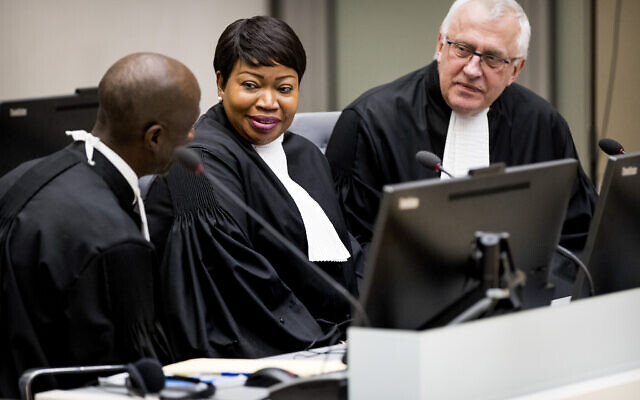
We were satisfied, upon examining the two documents that they indeed corresponded to the main elements that had been previously communicated to us and as such, reflected what we understood as the position of the Government of Israel as articulated in our request.
Furthermore, on the very next working day, we ourselves filed with the ICC judges the Attorney General Office’s memorandum and the synopsis paper.
In doing so, we stated to the judges that we believed it “necessary to place these documents in the record of the situation for completeness to enable the chamber to properly consider all views which might assist it in its determination” and reaffirmed our opinion that “having an open, participatory process to settle this question will ensure a full exposition of the spectrum of relevant perspectives, facilitate the chamber’s proper assessment and evaluation thereof, and importantly, substantially assist its determination of the matter.”
I considered it paramount that the Pre-Trial Chamber of the court is able to properly consider all views which might assist it in its determination, including those of Israel. Under the rules of the court (Rule 59 of the Rules of Procedure and Evidence), Palestine, because of their referral, will also be entitled to make representations, as will both Palestinian and Israeli victims, and we also hope amicus curiae — subject of course to the procedure to be decided upon by the judges (pursuant to Rule 58).
The Israeli government reacted with bitter criticism to your decision to launch an investigation. What went through your head when Prime Minister Benjamin Netanyahu accused you of “pure anti-Semitism”?
This is a particularly regrettable accusation that is without merit.
I, along with my Office, execute our mandate under the Rome Statute with utmost independence, objectivity, fairness and professional integrity. We will continue to meet our responsibilities as required by the Rome Statute without fear or favor.
An investigation has not yet been launched.
In all instances when the Office of the Prosecutor proceeds with an investigation, it does so independently and impartially. The office does not target individuals and will be led solely by the evidence it independently collects through its investigations. As a consequence, there are no suspects at this stage (whether Israeli or Palestinian) and certainly (since no investigation has yet been opened) no warrant of arrests have been issued by the Court.
As I clearly stated in my statement of 20 December 2019, I am satisfied that (i) war crimes have been or are being committed in the West Bank, including East Jerusalem, and the Gaza Strip (“Gaza”) (for specifics, see paras. 94-96); (ii) potential cases arising from the situation would be admissible; and (iii) there are no substantial reasons to believe that an investigation would not serve the interests of justice.
I have, however, refrained from opening an investigation until a fundamental matter is settled — namely, the scope of the court’s territorial jurisdiction in this situation.
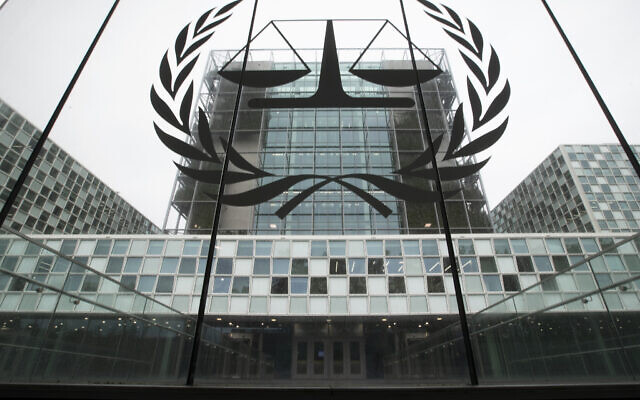
To be clear, based on a thorough assessment by my Office, I, as Prosecutor, believe that the Court does have jurisdiction and that the scope of the Court’s territorial jurisdiction extends to the West Bank, including East Jerusalem, and Gaza.
But we are also fully cognizant of the controversy that surrounds this question and the fact that it will be the first to be litigated before the International Criminal Court. I have therefore sought a judicial ruling on this specific jurisdictional question.
This is the key issue before the court now. Some may criticize me for seeking this ruling, but this is not an issue I can avoid: this issue will inevitably come up in litigation before the court.
I believe that it is far better and responsible that it is heard and decided now, before an investigation is opened, than after several costly years of investigation, after evidence has been collected, witness testimony taken, charges leveled, only then to find out whether the Prosecution’s position was correct.
For me, this is the responsible course of action as a prosecutor. The approach is sober. We recognize the existence of complex legal and factual issues and we voluntarily submit our position on the scope of the court’s territorial jurisdiction for judicial review. Moreover, we invite the court’s judges to hear from relevant parties before coming to a reasoned decision to settle this question now, before we proceed further.
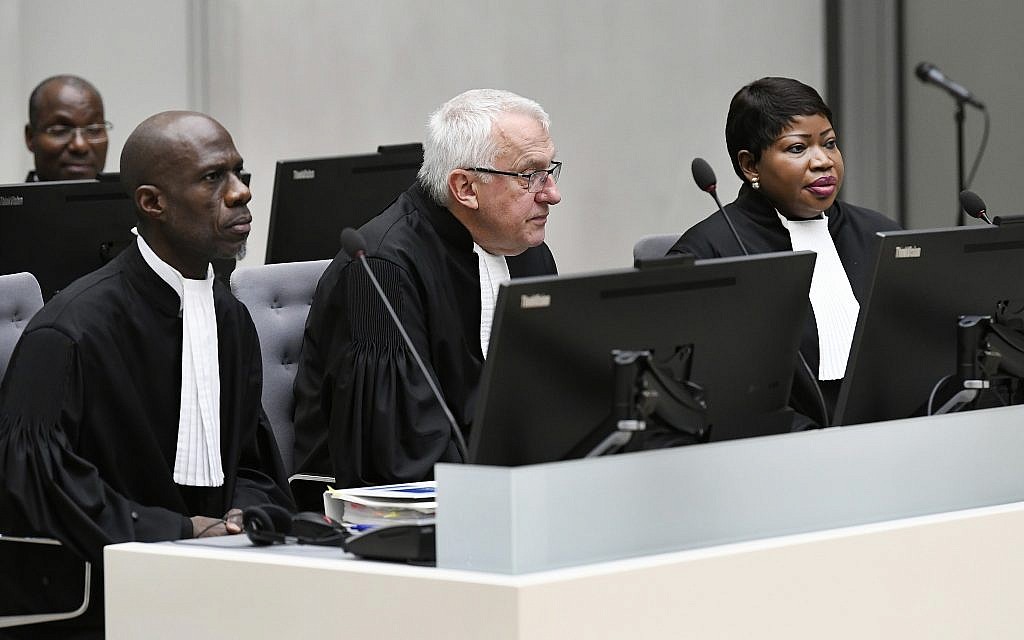
It also bears emphasizing that we have been regularly engaging with representatives from both Palestinian and Israeli authorities throughout the preliminary examination into this situation. This engagement has been constructive and helpful to [my] office’s independent assessment of the statutory criteria under the Rome Statute.
I hope that such constructive interactions can continue with the authorities of Israel and Palestine, and we equally look forward to engaging with the media, as appropriate, to ensure that accurate information concerning the work of my office and ICC proceedings is made available in the public interest.
The ICC does nothing in the face of ongoing wars, massacres and massive human rights violations in Iran, Syria, Turkey, Venezuela, North Korea and elsewhere, but then seeks to prosecute Israel, a Western democracy with an independent judiciary. In light of this fact, can you understand why many Israelis feel that the court’s probe into Israel/Palestine is politically biased and selective?
This charge also, regrettably, appears to derive from a lack of information and understanding of the court’s activities as well as how its jurisdiction works.
Pursuant to the Rome Statute, we can only investigate crimes committed on the territory or by the nationals of States Parties to the court. In many of the situations around the world (including a number of States that you have mentioned), the court cannot react as it simply has no jurisdiction.
This lack of jurisdiction can only be overcome if either (i) the relevant state becomes a State Party or otherwise accepts the court’s jurisdiction on an ad hoc basis or (ii) the UN Security Council refers the situation under Chapter VII of the UN Charter, as it did in the case of Darfur, Sudan, and Libya, for instance, but did not in the case of Syria.
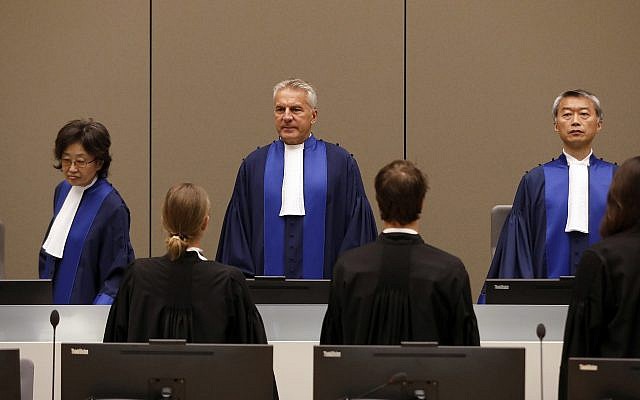
And even when we have jurisdiction and identify that crimes under the Rome Statute may have been committed, this does not mean that we automatically investigate. Before that, we need to establish whether the authorities concerned are conducting (or have conducted) genuine investigations and/or prosecutions with respect to the same potential cases that we intend to focus on.
The ICC is a court of last resort. If the national system is addressing the crimes we are looking at, the court does not step in. This is what we call the principle of complementarity, which is at the core of the ICC. My office honors this principle in accordance with the Rome Statute and relevant jurisprudence.
Moreover, the court is also not exclusively examining allegations related to the Situation in Palestine: as you know, we have multiple situations across different continents under investigation, and the same in terms of other preliminary examinations.
In this respect, in response to your question, Venezuela is a State Party to the Rome Statute, and my office has been working diligently to complete its assessment with respect to that situation. While the preliminary examination in the situation in Palestine opened in 2015, the situation in Venezuela was opened in 2018. Two different situations with different timelines.
So a direct comparison may be overly simplistic and might fail to take into account the facts, circumstances and our processes. For further information on our preliminary examination concerning the situation in Venezuela, I am happy to refer you to what is publicly available and may be of interest to your readership: see https://www.icc-cpi.int/Pages/item.aspx?name=PR1504.
We also conduct our activities in an objective and independent manner. Some reports appear to suggest that we are ideologically motivated.
These assertions are again unfounded and regrettable, and seem to overlook that [my] office has repeatedly declined, for example, to open an investigation into alleged IDF conduct in the context of the Mavi Marmara incident (Comoros situation) for lack of gravity (a specific legal issue), despite the request for reconsideration by the Pre-Trial Chamber — a fact that demonstrates that we take each decision objectively, on its own merits, in an independent and impartial manner.
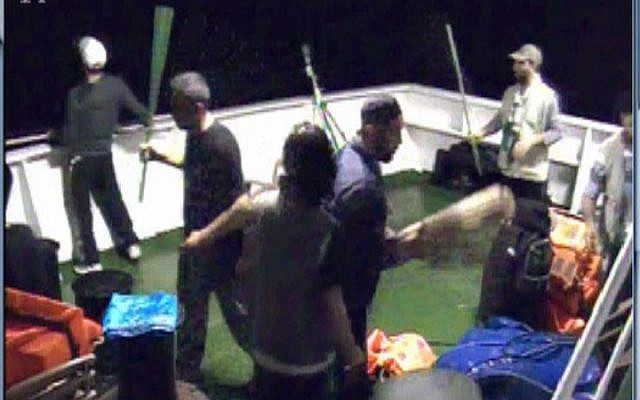
Let’s discuss in greater detail the content of your December 20 statement about your intention to launch an investigation into war crimes committed in the West Bank, East Jerusalem and Gaza. Firstly, the question of jurisdiction. You cite various UN resolutions as a basis for your position that Palestine is indeed a state that can transfer criminal jurisdiction to the court.
How can you claim that your assessment is independent and impartial when it relies on the decisions of political bodies, including those with a demonstrated bias against Israel (such as the UN Human Rights Council), in order to reach conclusions of law? How can you as a criminal prosecutor refer to contested decisions of political bodies as “matters of fact”?
These statements do not accurately reflect my request where I concluded that Palestine is a state for the purposes of the court’s exercise of jurisdiction — that is, for the sole purpose of the Rome Statute.
The reason that I refer to UN resolutions is principally because that is the route through which an entity can become a party to our treaty. Under our system, the UN Secretary-General (as depository) is responsible for receiving instruments of accession to the ICC Statute. And in doing so, the UN Secretary-General follows the practice of the UN General Assembly determining whether an entity has the competence to join that treaty. This is why the UNGA Resolution 67/19 is so central.
As you know, when on 29 November 2012, the UNGA adopted Resolution 67/19 granting Palestine “non-member observer State” status in the UN (with a majority of 138 votes in favor, 9 votes against and 41 abstentions), Palestine was able to accede to numerous treaties, including the ICC Statute.
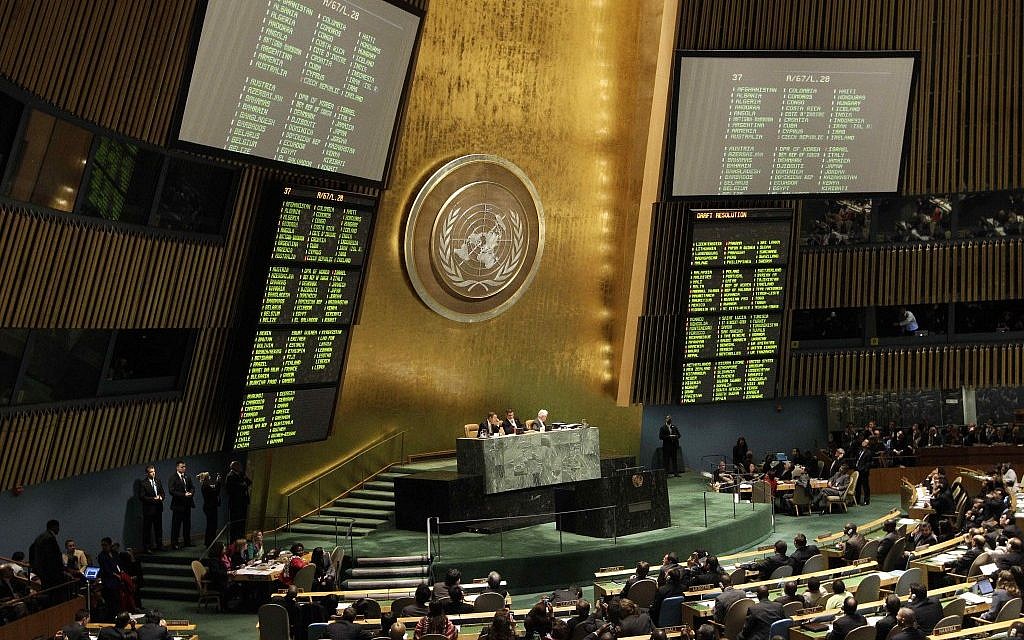
In my request, I argue that the Rome Statute makes no distinction among State Parties and I do not believe that I should myself make a distinction in lodging an investigation on the territory of Palestine. It would be strange to permit Palestine to join the Court, but to deny to it the natural consequence of its accession, which is to exercise the Court’s jurisdiction on its territory.
However, and to the extent that the Pre-Trial Chamber may disagree with this position and considers it necessary to look more closely at whether Palestine should be treated differently to other ICC States Parties because of the unique context, I have argued that Palestine should still be considered a state for the purposes of the ICC Statute: that is, I am not asking the judges to determine whether Palestine is a State for the purpose of international law more generally, but I am arguing that, in the circumstances, there are sufficient indicia of statehood to enable the ordinary operation of the ICC Statute. These are set out in my request before the judges.
Considering these, and bearing in mind other relevant factors, such as the object and purpose of the Rome Statute and that at least 138 States have recognized Palestine, I have concluded that Palestine is a state for the purposes of the ICC Statute.
In this regard, it is incorrect to suggest that I have solely relied on the Human Rights Council to reach this conclusion. My request presents — and my office has analyzed as relevant — the assessment conducted by a number of different competent and informed bodies, such as the International Court of Justice, the UN General Assembly, the UN Security Council, the Secretary-General and several UN coordinators, rapporteurs and committees.
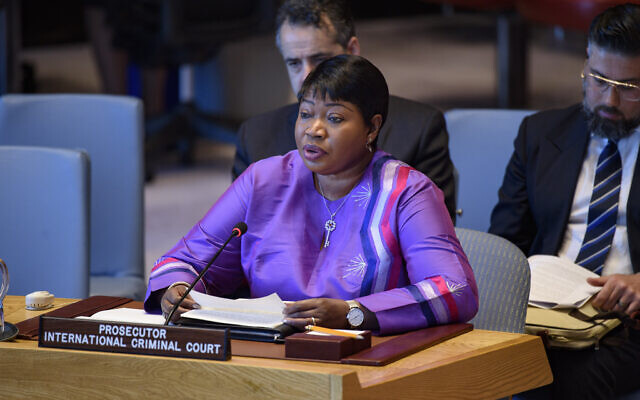
Their conclusions have been endorsed by numerous external experts, which have found that the construction and the expansion of the settlements and the barrier and its associated regime are contrary to international law. I am aware of — and I have considered — the recent US statements to the contrary, which I cite too, although this has not changed my analysis.
As a final point, my office undertakes its own independent professional assessment of the statutory criteria. We cross reference and engage in a thorough assessment of the materials generated as part of the preliminary examination process.
In the case of the situation of Palestine, we were in possession of an incredible amount of material provided to us by all sides. Part of the reason it has taken us the time that it has to finalize our preliminary examination assessment is due to the volume of material we had to process and carefully review.
A close and objective reading of my request before the court’s judges, dated 20 December 2019, demonstrates the care and depth of my office’s assessment: see https://www.icc-cpi.int/Pages/record.aspx?docNo=ICC-01/18-9.
How do you explain the apparent contradiction between your position that there is a sovereign Palestinian state (that can delegate criminal jurisdiction to The Hague) and the position, held by the Palestinians, that they are under Israeli occupation? How can Palestine be both occupied and sovereign at the same time?
In my request, I take the carefully reflected legal position — which is in line with the prevalent view of the international community — that Israel continues to occupy the West Bank, including East Jerusalem, and Gaza.
However, for the reasons set out therein, I did not consider that this factor precludes the exercise of the court’s jurisdiction. As this argument will arise in litigation, and indeed is addressed in the [Israeli] Attorney General Office’s memorandum, it would be improper for me to comment further at this stage. We will engage further with this argument in our written observations.
The matters presented and analyzed in my request are complex and have been subject to analysis and debate for many years. This is precisely why we wish to have them resolved by the ICC judges.
‘We have been regularly engaging with representatives from both Palestinian and Israeli authorities. That engagement has been meaningful and substantive’
It is unfortunate that extracts of my request appear to have been overly simplified or misunderstood.
I also refer you to my answers above concerning Palestine being a State Party for the purposes of the Rome Statute.
Why do you seek to investigate Israeli settlements as possibly constituting war crimes, yet appear utterly unfazed by Turkish settlements in Northern Cyprus or Russian settlements in Crimea? In both Cyprus and Ukraine, the case for the court’s jurisdiction is much easier to decide than in the Palestine situation?
This question makes a number of assumptions.
It is well known that we have received a number of communications in relation to Northern Cyprus. Our assessment in connection with this situation continues. I intend to publish my findings on this preliminary examination later this year. Crimea is also within the scope of the ongoing preliminary examination with respect to Ukraine, which is well advanced.
The report on preliminary examinations your office published in early December cited the Palestinian Authority encouraging acts of violence by paying stipends to terrorists. How come your 112-page statement issued two weeks later makes no mention of this?
The annual preliminary examination report serves to provide a general update on our activities. It typically summarizes the types of allegations we have received during the reporting period.
In this context, the December 2019 report recorded that [my] office had “received allegations” that: (i) Palestinian security and intelligence services in the West Bank have committed the crime against humanity of torture and related acts against civilians held in detention centers under their control; and (ii) the Palestinian Authority have encouraged and provided financial incentives for the commission of violence through their provision of payments to the families of Palestinians who were involved, in particular, in carrying out attacks against Israeli citizens, and under the circumstances, the payment of such stipends may give rise to Rome Statute crimes.
We noted that “these as well as any other alleged crimes that may occur in the future require further assessment.”
My request to the judges does not take a position on these allegations, and instead limits itself to an overview of those alleged crimes for which we, at this stage, find a reasonable basis to believe were committed. Thus, at paragraph 94 of my request, I provide a summarized overview of my legal findings. I explain that I have concluded that there is a reasonable basis to believe that members of Hamas and Palestinian armed groups have committed specific war crimes.
At the same time, I expressly state that “the crimes identified above are illustrative only. Once the prosecutor proceeds under article 53(1), her investigation will not be limited only to the specific crimes that informed her assessment at the preliminary examination stage.
The prosecution will be able to expand or modify the investigation with respect to the acts identified above or other alleged acts, incidents, groups or persons and/or to adopt different legal qualifications, so long as the cases identified for prosecution are sufficiently linked to the situation.” (see paras. 98-100).
Here, I must again emphasize that the request is limited solely to the question of the scope of the court’s territorial jurisdiction. I intentionally did not want to distract attention from the focus of these proceedings, which is already complex. This is why I merely provided an overview of my findings sufficient to demonstrate that the issue before the judges is concretely related to the scope of future investigations.
In the context of any future investigation if opened, alleged crimes arising from the situation will be assessed and acted upon in accordance with our obligations under the Rome Statute and our case selection and prioritization policy, which is publicly available: https://www.icc-cpi.int/itemsDocuments/20160915_OTP-Policy_Case-Selection_Eng.pdf.
Is it true that, as Channel 13 reported recently, you refused to meet with a delegation of Israeli NGOs who repeatedly requested a meeting while you met regularly with Palestinian NGOs, including just days before announcing your decision to start an investigation?
This may have arisen from confusion with the annual meeting of the Assembly of States Parties (ASP) to the Rome Statute, which States and numerous civil society organizations attend and which happened to occur two weeks before we filed. [My] office interacted with numerous states and NGOs at the ASP, but it is not aware of any specific refusal to meet with an Israeli NGO, and would be grateful for any further information on this.

As mentioned, we have been regularly engaging with representatives from both Palestinian and Israeli authorities throughout the preliminary examination process into the situation in Palestine. That engagement has been meaningful and substantive, as well as constructive and helpful to the Office’s independent assessment of the statutory criteria under the Rome Statute.
I hope that that constructive interaction can continue.
I repeat the fact that [my] office undertakes its mandate with utmost commitment, independence and objectivity.
How do you explain that the historical analysis of the Israeli-Palestinian conflict in your December 20 statement makes no mention of Palestinian terrorism, but rather describes a situation in which there are no Israeli victims?
The purpose of the contextual and historical overview was to concisely outline different historical events which may be informative and relevant to the judge’s determination of the scope of the court’s territorial jurisdiction in the situation of Palestine.
In terms of Israeli victims of violence by Palestinians, I make express findings that members of Hamas and Palestinian armed groups committed the war crimes of intentionally directing attacks against civilians and civilian objects; using protected persons as shields; willfully depriving protected persons of the rights of fair and regular trial and willful killing; and torture or inhuman treatment and/or outrages upon personal dignity.
If there are other historical facts which others consider important to set out, I welcome those being put before the judges. This is why I have encouraged an open and participatory judicial process to enable interested parties to provide their observations to the judges.
This is a prosecuting office. Our mandate is a legal one. In all instances, we draft our submissions and pleadings carefully and clinically for their intended purpose.
The PLO’s Saeb Erekat has said publicly that the Palestinian committee dealing with the ICC was made up of all Palestinian factions, including Hamas and the Popular Front for the Liberation of Palestine. Did you or members of your office meet with Hamas or PFLP representatives? What’s your policy on engaging with members of internationally recognized terrorist organizations?
The official point of contact and communication with [my] office in the context of the situation in Palestine is with the Palestinian Authority. We also engage directly with the Israeli authorities.
My office has not met with any individuals identified as representing Hamas or the PFLP.
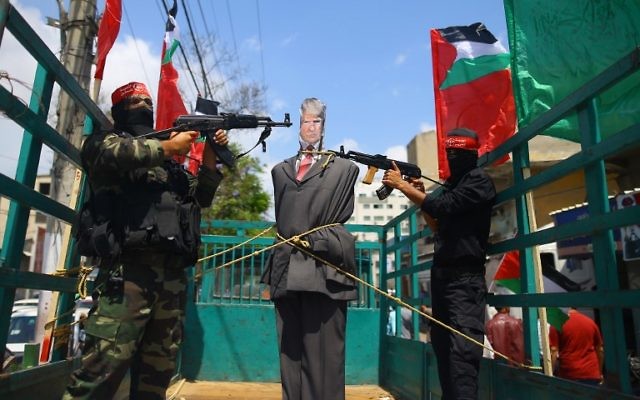
A general point needs to be emphasized, however. Again, we are a prosecuting office that has an open door policy and meets with different groups and actors for the sole purpose of executing its mandate under the Rome Statute.
The office has a strict policy and indeed obligation to ensure it undertakes its duties with independence and objectivity in all instances. That is what my offices stands for and the standards by which it operates and discharges its legal responsibilities.
You also seek to investigate Hamas for alleged war crimes. Critics argue this was done to give the appearance of balance, but that such any such equation puts on equal moral footing a Western democracy that seeks to avoid harm to uninvolved non-combatants and a brutal terrorist organization deliberately targeting civilians. How do you respond to this?
I cannot control what certain individuals may perceive or whether they wish to speculate on our motives without evidence or support.
The basis for our setting out our findings is whether we believe certain war crimes were committed: doing so, as required by the ICC Statute, should not give rise to speculations of ulterior motives.
‘Some have attempted to spin or misrepresent my work by making false accusations and/or attacking my credibility. This of course was anticipated’
There are for example also unfounded allegations out there that our request exclusively focused on alleged crimes attributed to Israel. This, as you know, is also factually incorrect and appears to be either misinformed or aimed to undermine the perception of our work.
I invite your readers to carefully read our request before ICC judges, dated 20 December 2019.
We undertake our responsibilities under the Rome Statute with professional integrity and utmost objectivity in applying the legal framework of the Rome Statute and the laws of armed conflict.
Whether you get to launch an investigation into the “situation in Palestine” will depend now on the three judges of the pretrial chamber. If they disagree with you and rule that the court does not have jurisdiction in this case, will you drop it or will you appeal their decision?
I don’t wish to speculate on the ultimate outcome of the judges’ ruling. Right now, the matter is before them, and I hope that those proceedings become inclusive ones where different views are heard and ventilated assisting the process and the judges to reach an informed and legally sound decision. When the decision is rendered, I will then analyze it and take any steps that I consider necessary.
Your nine-year term as prosecutor ends next year, which means that the Israel/Palestine case may be decided long after you’ve left the court. Do you expect your successor, whoever it may be, to hold the same positions (regarding, for instance, Palestinian statehood and the need to open an investigation) or could he or she decided to change the office’s policy and drop the case?
I have requested that the court’s judges deliver their ruling in response to my request well before the end of my term as prosecutor — indeed, I have invited they do so within 120 days, subject to adjustment to enable the participation of others. If an investigation is opened, I anticipate it will be during my term.

We have a vigorous process of internal review, including through the work of the office’s Executive Committee. Our decision-making is based on a careful assessment of our statutory duties as applied to any situation under assessment by the office. That work, as mentioned, is done with a firm commitment to our mandate under the Statute and the discharge of that mandate without fear or favour.
I am confident that my successor will ensure the continuity of the office’s professional standards in the service of his or her duties under the Rome Statute.
Allow me to ask you a few personal questions. Before joining the ICC you were a senior official in the government of Gambian dictator Yahya Jammeh. Between 1998 and 2000, you were his chief legal advisor — the justice minister of an unjust regime. Looking back at this stage of your life, do you regret having worked for and with Jammeh? Why did you never speak out against the injustices committed by your former boss?
I note generally that some have attempted to spin or misrepresent my work as prosecutor concerning the situation in Palestine by making false accusations and/or attacking my credibility. This of course was anticipated, as it is a standard tactic to discredit someone who makes an accusation or takes a contrary position.
In our own courtroom context, it is perhaps akin a counsel trying to mount a character assassination of a witness to undermine their credibility.
Such attempts and distractions, however, do not change the fact that I (along with my Office) have been executing my mandate independently and objectively in conformity with the ICC Statute.
‘I have nothing to hide and my conscience is clear’
In The Gambia, I served my country and the people of The Gambia honorably and with utmost integrity. I demonstrated a sincere and unshakable commitment to the law, and equality in the eyes of the law.
While in public office, I strove to promote gender equality, strengthen the legal profession and increase access to the courts for ordinary Gambians. I also strove to strengthen the force of the law in the country. My efforts in this regard are part of the public record.
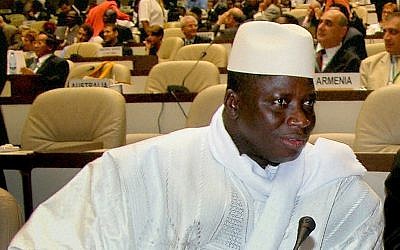
I left my position as Attorney General following differences with the former Gambian President Jammeh in 2000 (I was in office for two years in that capacity, from 1998 to 2000). It was my professional integrity that culminated in those differences.
I was dismayed and shocked to hear, along with the public, the human rights violations attributed to the former President Jammeh that are now being revealed and reported following the end of his rule.
I have gone to great length to explain publicly, including to Gambian media, the legal parameters of my jurisdiction as ICC Prosecutor as stipulated under the Rome Statute, while also reiterating that I will undertake my mandate without fear or favour wherever my jurisdiction is established, whether that is in The Gambia or elsewhere.
According to at least two witnesses who testified in front of Gambia’s Truth, Reconciliation and Reparations Commission, you were, during your term as prosecutor, involved in cases during which defendants were unlawfully tortured. Some in Israel have said that someone who may have been involved, even passively, in human rights abuses, has no moral right to prosecute Israelis. How do you respond to such charges?
I have categorically denied these false accusations and innuendos.
In the case of the two witnesses you refer to, it must be emphasized that once I received the dossiers in question as prepared by, inter alia, the Gambian police in my capacity as Deputy Director of Public Prosecution, it was based on my independent and professional assessment of the case and on my ultimate recommendations that the charges in that case against the two individuals and others were dropped. You are invited to check the records of the case, and contact The Gambian Ministry of Justice.
Other witness testimony before the Gambian Truth, Reconciliation and Reparations Commission, attests to the principled approach adopted and applied while I served The Gambia in different capacities.
Should my current mandate with the ICC and related responsibilities and limitations permit, I would have no misgivings whatsoever to appear before the Truth, Reconciliation and Reparations Commission of The Gambia to answer the false and misleading allegations leveled against me in my absence and without me being heard. I have nothing to hide and my conscience is clear.
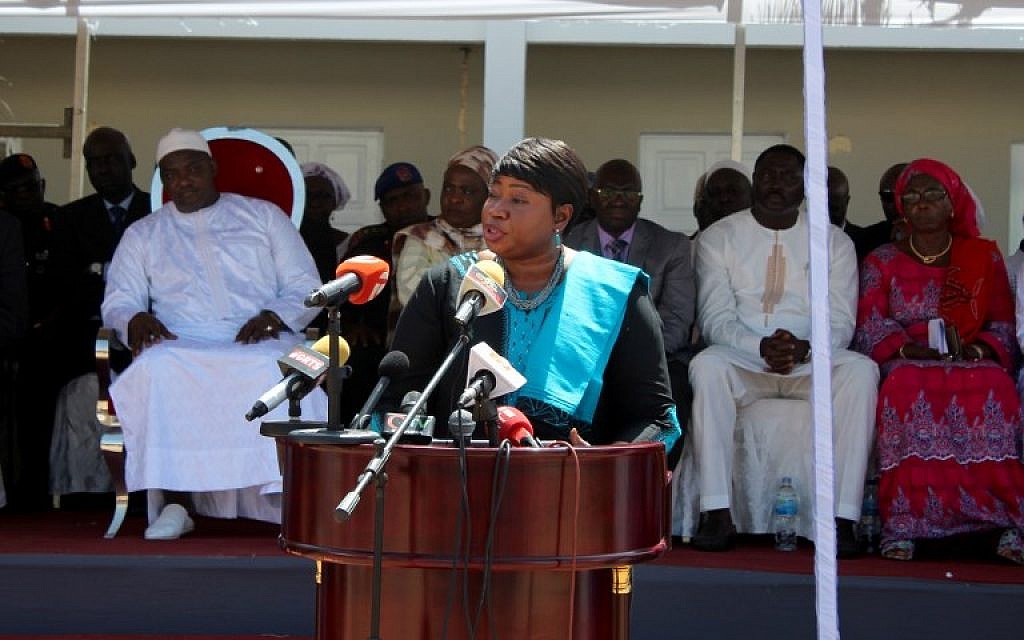
Allow me to also reiterate here that I, along with my dedicated and professional staff, am firmly committed to our mandate under the Rome Statute. No matter what. We will not be distracted or allow our work to be impeded by an agenda-filled disinformation campaign aimed at undermining our work.
We hope that through an open, civil and frank engagement with the media and other stakeholders, the court’s crucial work in advancing accountability for the world’s gravest crimes within its jurisdiction is better understood and supported.
As first reported in The Times of Israel last week, you attended a government-sponsored conference in Israel in 1998. What memories do you have from this visit? Have you been back since? If not, would you like to visit Israel again?
I participated in that conference in my prior role with the Government of The Gambia. I fondly recall that visit and the important discussions on women’s empowerment. I do hope to have the occasion to visit Israel again.
Source: https://www.timesofisrael.com
Disclaimer: We at Prepare for Change (PFC) bring you information that is not offered by the mainstream news, and therefore may seem controversial. The opinions, views, statements, and/or information we present are not necessarily promoted, endorsed, espoused, or agreed to by Prepare for Change, its leadership Council, members, those who work with PFC, or those who read its content. However, they are hopefully provocative. Please use discernment! Use logical thinking, your own intuition and your own connection with Source, Spirit and Natural Laws to help you determine what is true and what is not. By sharing information and seeding dialogue, it is our goal to raise consciousness and awareness of higher truths to free us from enslavement of the matrix in this material realm.
 EN
EN FR
FR



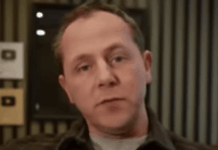

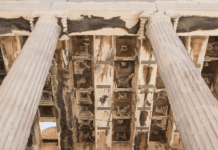
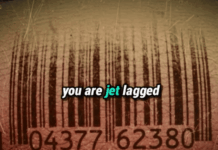
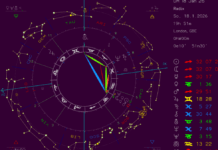

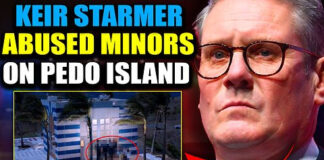

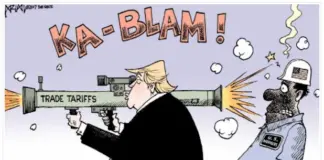














Should I repeat my self again.This is situation where slave is trying to prosecute their masters.All these organizations are creations of very same evil masters as as public anger release valve.Even Holly Bible unedited mention master is allowed to beat his slave.If slaves dies in 3 days from beating master is guilty,if slave dies after 3 days master is not guilty .So God supports slavery and beating.For Christ sake what is wrong with this Masochistic World?????Not that I believe in fairy tale of Jesus,concocted by Piso family in Rome year 65 a.d.